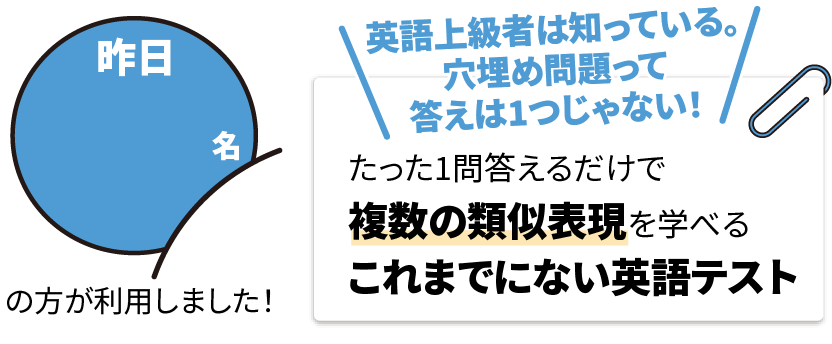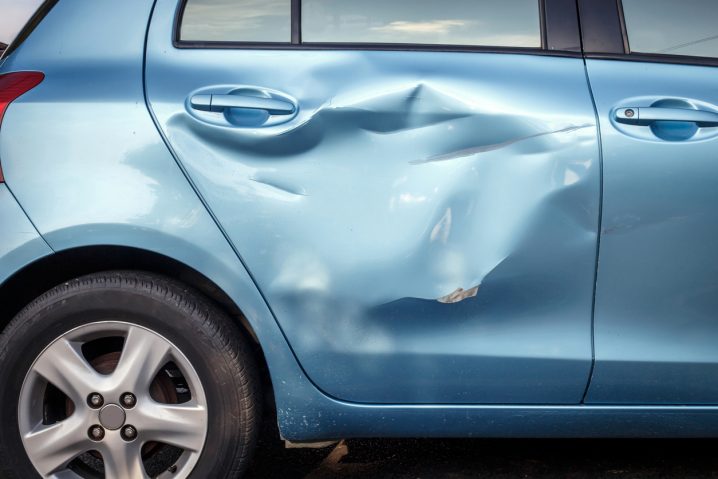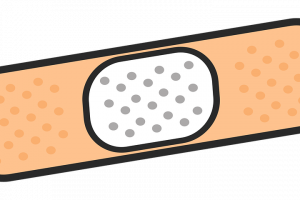Hello, this is Simon.
Simon先生の英語ブログを読もう!
The other day, my wife came home looking quite down. I asked her what the matter was, and she told me that she had had a “mishap”. Apparently, she stopped off somewhere to buy something on the way home. When she had bought what she needed, she started pulling out of her parking space, but couldn’t see so well as it was dark. I’m sure you can guess what happened next. She pranged the car…
After hearing this we went outside to look at it but it was difficult to see because it was night. I can see it was dented above the wheel but it didn’t look like a big dent.
Looking at it the next day was a different story though. I could see she had done a real job on it. A real fender bender, done good and proper. It wasn’t just a little ding. There was a large scrape across three of the panels. The wheel arch looked like it was beyond panel beating. It would need to be completely replaced.
It couldn’t have happened at a better time though. The car is now over 12 years old and we’ve been thinking about replacing for quite some time now. It turned out to be a blessing in disguise, which prompted us to get moving and actually buy the new car that we had been talking about for so long. Also, it broke my out of my writer’s block and gave me an idea for this month’s blog.
I guess you could call it a “fortunate mishap”.
英語ブログから使える英語表現をおぼえよう!
had a mishap
The noun “mishap” means bad luck, or an unfortunate event, incident or accident. It can be can be countable (e.g. I need to be more careful, as I have had a number of mishaps this week.) or uncountable (e.g. I hope I can get through this week without mishap.)
pulling out of her parking space
To “pull out” means to drive a vehicle out from somewhere such as a parking space or driveway onto a lane or road. It can also mean to move into a different lane (e.g. I pulled out of the car park./He pulled out onto the main road./A car pulled out in front of me and we nearly had a crash.)
pranged the car
“Prang” can be both a verb and a noun. The verb means to slightly damage a vehicle in a road accident (e.g. He pranged his father’s car the first time he took it out for a drive.) And, the noun means a road accident where a vehicle is only slightly damaged (e.g. I had a prang on the way to work this morning.) This is British English and the American equivalent is a “fender bender” (noun).
it was dented / a big dent
I’m sure you are familiar with the noun “dent”, which is a slight hollow mark in the surface of something (e.g. There is a small dent in my car door.) However, similar to “prang”, the word “dent” can also be verb which means to make slight hollow mark in the surface of something (e.g. I dropped a surfboard on the bonnet of my car and dented it.) You can also “dent” someone’s pride or confidence, which means to make them feel less proud or confident (e.g. It badly dented his pride, when he didn’t get selected for the team.)
had done a real job on it
To do a job on someone/something means to especially to have a damaging effect on it (e.g. The typhoon did a real job on this town./The boxer did quite a job on his opponent.)
a large scrape
To “scrape” means to rub against a surface in a rough way that causes an unpleasant sound, damage or injury (e.g. I fell over and scraped my knee.) This can also be a noun, which is an unpleasant sound, damage or injury caused by rubbing against a surface in a rough way (e.g. I have a large scrape on my knee./That music sounds like fingernails scraping on a blackboard.)
beyond…
“Beyond” in this case means too serious or bad to believe, repair or recognize (e.g. His rude behavior was beyond belief./After the crash, my car was beyond repair.)
panel beating
Panel beating the action of beating (hitting) the panels of motor vehicles to return them to their original shape (before they were dented). For example, “I took my car to the garage for some panel beating.” A person or shop that does this kind of work is called a “panel beater”.
done good and proper
To do something “good and proper” means to do it completely. It is often used when talking about damage done to someone/something (e.g. He banged his head good and proper./I dropped my iPhone and broke it good and proper.)
it couldn’t have happened at a better time
The phrase “it couldn’t have happened at a better time” means the same as “It was perfect timing.” Although, I think it is a little more emphatic. You can also say “couldn’t have happened at a worse time” for those most unfortunately timed incidents.
a blessing in disguise
We use the phrase “a blessing in disguise” to describe something that initially seems like a misfortune, but eventually has good results.
The above words/expressions are a few that come up after the unfortunate event of hitting your car, as well as a few others that I thought may be useful.
Take care and, see you next month!
Simon先生の前回の英語ブログ「Coming up with something 「何かを思いつく」」を見逃した方は、是非こちらからどうぞ!

Hello! My name is Simon.
I am from New Zealand, and have been living and teaching English in Japan since 1999.
My hobbies include movies, playing the guitar, gardening and hiking.
※このブログでは英語学習に役立つ情報アドバイスを提供していますが、本ブログで提供された情報及びアドバイスによって起きた問題に関しては一切、当方やライターに責任や義務は発生しません。
※ここでの情報や助言を参考に英文を書いたり下した判断は、すべて読者の責任において行ってください。ここに掲載されている記事内の主張等は、個人の見解であり当社の意見を代弁・代表するものではありません。








 (6 イイネ!が押されています)
(6 イイネ!が押されています)



























コメントする